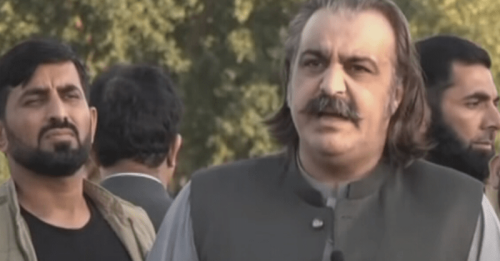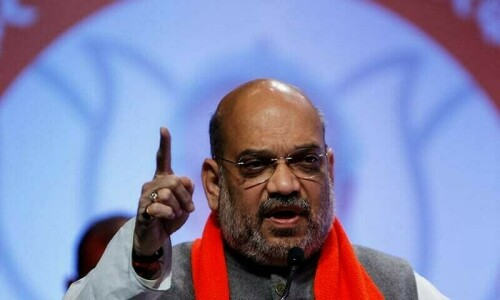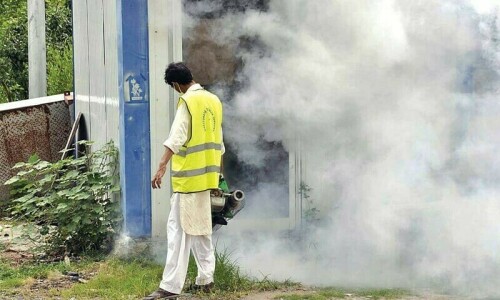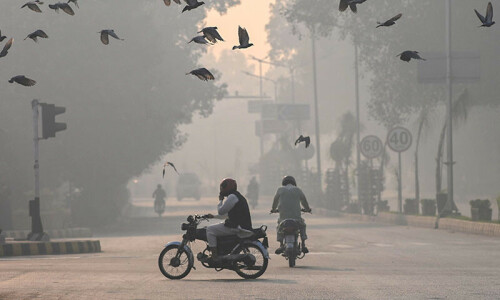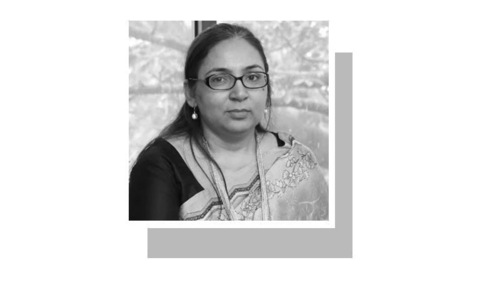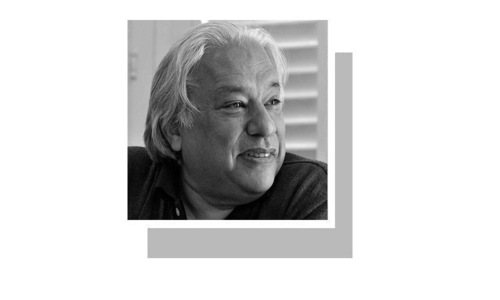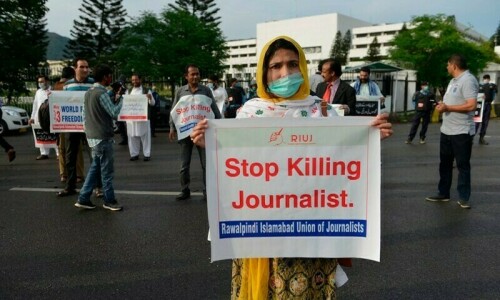IN part, out of the anxieties imposed by global concerns with religious fundamentalism, and in part, due to events in Pakistan’s immediate neighbourhood, significant intellectual and policy attention is devoted to the issue of religious groups and their relationship with formal state power. This fixation is often anchored in the concern that Pakistan is on the verge of a takeover by religious hard-liners, or, mitigated by the optimism of how elections and mainstream provide a persistent defence against this possibility.
As a corrective, one first needs to look at the sheer diversity of religious organisations currently active: there are formally registered political parties that operate within the realm of electoral politics seeking to bring about religiously motivated change through the state; movements that largely focus on street mobilisation; and militant groups that focus on spectacular and localised violence.
What makes Pakistan’s case interesting — as a Muslim-majority country — is the trajectory of both the state and society’s relationship with this diverse array of religious groups. It stands in somewhat sharp contrast to comparator countries like Turkey, Egypt, pre-revolution Iran, Algeria, Libya and a host of others, where states and ruling elites have at different points in time attempted to oppose religious discourse in the political and policy domain.
An interesting comparison can be drawn with cases like Turkey, where the ideology of an older ruling elite sought to keep out conservative/Islamist elites and popular classes from the exercise of political power. This was done through propagation of secularist ideals but also the exercise of authoritarian power (such as through military coups and violence to combat popular religious groups). While these efforts created societal buy-in for a secularist vision of public life among some segments of society, it continues to face significant pressure from the Islamists that have adapted to this oppositional challenge by welding together neoliberal consumerist economics, cultural nationalism and Islamic assertion.
A concessional approach has emboldened religious groups to make more demands.
Similarly in Egypt, despite several decades of violent authoritarian treatment of religious groups, the minute an opening presented itself, as it did during the Arab Spring, Islamists proved to be the most organisationally adept at taking advantage of it. There is still little doubt that if Egypt were to hold free and fair elections, the Muslim Brotherhood, or some incarnation of it, would be a leading contender for power.
In Pakistan, various religious groups have opposed or sided with ruling elites in different configurations, often in the same time period, while generally maintaining a statist disposition. It was only in the mid-2000s onwards that anti-state Islamists, such as the TTP and Lashkar-i-Jhangvi and their mainstream sympathisers, obtained some level of critical mass to pose a serious counter-hegemonic challenge to the state itself. This has been dealt with militarily to some extent, but the possibilities of a resurgence due to regional geostrategic dynamics remains intact.
A plausible reason for the electoral/political limitations of the Islamist project in Pakistan is that the political and military elite has frequently co-opted both religious organisations for domestic and regional considerations, and religious discourse for personal legitimacy. This co-optation and selective granting of patronage blunts the cultural and organisational popularity of various religious groups, and prevents them from taking direct control of the political system
However, this co-optation, often celebrated as smart tactics and deft politicking, has extracted a considerable toll. Since at least the 1960s, ruling elites have — out of expediency or genuine belief — accepted various demands from a variety of religious groups in order to sustain their own position in power. Whether that’s the creation of supra-parliamentary institutions for religious oversight, or the insertion of religious clauses into the Constitution or the Penal Code, or accepting a de facto veto on gender and cultural issues, the objectives outlined by religious groups have been fulfilled without their outright attainment of state power. If anything this concessional approach towards dealing with central cultural questions, on part of the ruling elite, has emboldened religious groups to make more demands and seek more concessions.
Banned: What does the TLP want?
The latest chapter in this saga is the government’s supposed tactics in dealing with the TLP and the broader, and extremely dangerous issue of blasphemy. The messaging so far has been that the state is the sole arbiter of the issue and that it will turn this and Islamophobia into a central plank of its foreign policy. Pan-Islamism has always lurked in public posturing of the political elite, but the forceful and repeated assertions of the prime minister in linking pan-Islamist goals with this issue do not find precedence in the recent past. An early outcome of this assertion is also visible in the recently passed (non-binding, non-executive) resolution by the European Union’s legislative body seeking to put Pakistan’s GSP-Plus status up for review.
Far from being a smart tactic, the government’s strategy to deal with the weaponisation of blasphemy replicates the mistakes of previous regimes. Firstly, it accepts the demand placed by the TLP and its affiliates as legitimate. This means that a particular understanding of a problem is now the only mainstream understanding. Secondly, it reaffirms the existing, and frankly, repressive, legal architecture that is often used to discriminate against minorities and settle personal vendettas. Third, it opens the door to scrutiny and evaluation on its adherence to these demands, and sustains the existence of vigilante violence. That is, who is to say that someone disappointed by how public authorities deal with alleged blasphemy — after supposedly giving a commitment on it — won’t turn it into a vigilante issue.
This issue of being outflanked by the religious right is a challenging one, and one that exists in perpetuity for the Pakistani state. Frequent co-optation of discourse and selective patronage provides momentary relief, but it simply pushes the can further down the road as new issues and complications arise.
The writer teaches politics and sociology at Lums.
Twitter: @umairjav
Published in Dawn, May 3rd, 2021
















